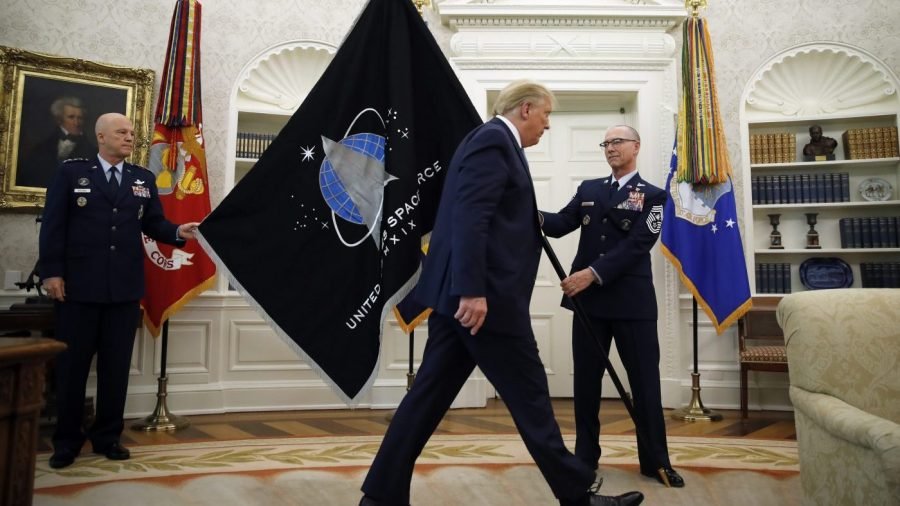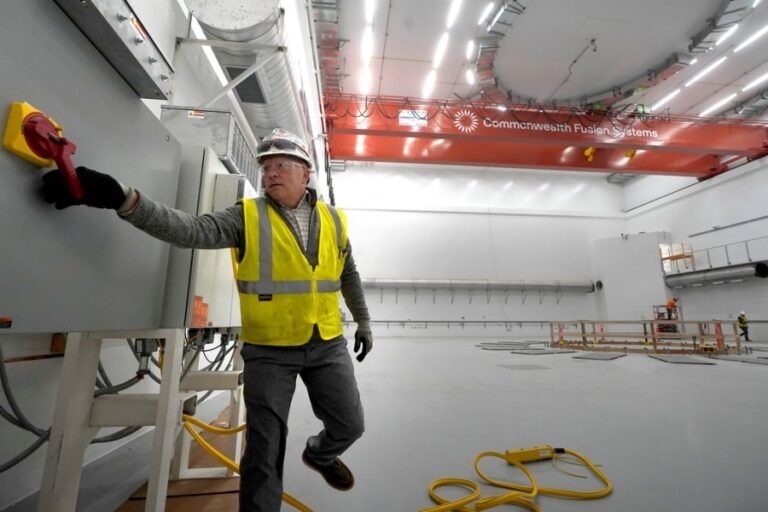
The first Trump administration was the best for space policy in decades. From the creation of the Space Force to pathbreaking international agreements such as the Artemis Accords to stronger protections for outer space property rights, America reasserted itself as the world’s premier space power. None of this would have been possible without a team of space policy experts and political leaders in key roles.
But this time is different. Many important space policy and leadership positions remain vacant. Qualified personnel have been nominated, but the Senate has yet to act. Nor has President Trump chosen to force the issue.
Personnel is policy, as the saying goes — and there is a real risk that a policy of passivity will undermine the gains America has made in space.
Holdups at NASA are case in point. Jared Isaacman, the president’s first nominee to lead the space agency, was a promising pick. But Trump withdrew his nomination in May over political concerns, namely Isaacman’s ties to Elon Musk and past support for certain Democrats. After Janet Petro, previously the head of the Kennedy Space Center, served as interim administrator for six months, Trump named Transportation Secretary Sean Duffy as acting head. Duffy is talented, but NASA needs dedicated leadership to avoid strategic blunders.
Other needless vacancies are stalling the national space agenda. Matthew Anderson, the nominee for NASA’s deputy administrator, and Greg Autry, nominee for NASA’s chief financial officer, are both major figures in the space industry. Both await Senate confirmation. The Trump administration would be within its rights to make its displeasure known over these holdups. But it seems the president has other priorities.
Other agencies with space policy portfolios are suffering, too. The Office of Space Commerce, within the National Oceanic and Atmospheric Administration, lacks a political appointee to take charge of important space traffic management and policy coordination projects. Combined with staff reductions and funding cuts, there is widespread uncertainty within the government about whether the administration is committed to strengthening America’s commercial space capabilities.
The list goes on. Marc Berkowitz, a notable shaper of space and security policy who was nominated as assistant secretary of Defense, does not have a date scheduled for his confirmation hearing. The State Department has no political appointee responsible for space policy. Despite assurances from the administration that it will soon make a comeback, the National Space Council is nowhere to be seen. This is a missed opportunity.
The status quo at various federal agencies is often secure enough that policy initiatives can survive, and even thrive, during leadership vacancies. That is not the case with space policy. Widespread uncertainty, looming budget and career staff shortfalls, and developments abroad — including those concerning America’s grand-strategic rivals, Russia and China — could derail long-term national space goals if the president and his closest advisors do not change course.
It does not have to be this way. From his first administration, Trump is undoubtedly aware how important it is to get key political appointees in place to ensure accountability and to harmonize policy with his goals. The Republican Party already has a bold agenda for solidifying America’s position in the celestial high ground. The space policies created in the first Trump administration remain in place. What is lacking is a team to faithfully and energetically implement those policies.
With a dedicated effort of presidential will, Trump can jolt the nation’s space enterprises back into high gear.
Trump should immediately reactivate the National Space Council and lean on the Senate to confirm his space policy nominees. He should also involve Vice President JD Vance, whose commitments to revitalizing American manufacturing fit with the strategic need to strengthen the defense industrial base and the space industrial base in particular.
Every day that key positions remain unfilled presents hostile nations an opportunity to undercut the U.S. and assert control over space.
Space is no longer a peripheral policy area. The space economy, already worth several hundred billion, is projected to grow to a staggering $1.8 trillion by 2035. Our daily lives, from weather forecasts to financial networks, depend on satellites and other space-reliant infrastructure that must be protected. The U.S. faces new threats from China and Russia that require space-enabled defenses, such as the Golden Dome missile system. All of this necessitates filling critical space policy positions.
Continued vacancies threaten our economic wellbeing and physical safety. The Trump administration must get serious about space policy personnel — just like it was the first time around.
Alexander William Salter is the Georgie G. Snyder Associate Professor of Economics at the Rawls College of Business at Texas Tech University and a research fellow at TTU’s Free Market Institute. He holds fellowships with the Independent Institute in Oakland, Calif. and the American Institute for Economic Research in Great Barrington, Mass.


